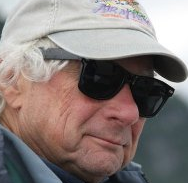No, Letting The Rich And Powerful Prey On The Rest of Us Is Not A good Idea
By Joe Rothstein
“I bet it’s brand new information to people that President Obama had a printing press in the White House basement that secretly generated laws and regulations no one wanted, written in language no one could understand, designed to stop business people from getting loans and creating jobs.”
That quote isn’t from Kellyanne Conway, President Trump’s valued White House assistant for alternative facts. But it might have been. These days, reality for the new administration is anything the President wants it to be. And among things Trump wants us to believe are that a raft of laws and regulations designed to protect workers, investors and consumers are really detrimental to our health, our employment prospects and our pocketbooks.
For one grotesque example, Trump is moving quickly to undo a Department of Labor requirement that financial advisors act in the best interests of their clients when proposing retirement investments. The organization representing financial advisers hates this requirement. Mandate ethical behavior? What a terrible idea. Too expensive. Too much paperwork. Too time-consuming. Trump, an expert in unethical business behavior certainly agrees.
Another Obama-era regulation heading rapidly for oblivion would require coal companies to take responsibility for river and stream damage caused by mining’s toxic metal residue. They blow the tops off mountains, destroy the waterways below and disclaim any responsibility for the damage to drinking water, fisheries or other vital water uses. But Trump and his Republican congressional allies are hell bent to reverse “the war on coal.” So we will have a war on clean water instead.
Then there’s the Securities and Exchange Commission requirement that energy companies disclose payments to foreign governments for development rights---a key measure to prevent corruption in places like Africa and Latin America. Leading the fight to get rid of this regulation is none other than Rex Tillerson, our new secretary of state, who, as Exxon Mobil’s chief executive argued that the rule would put American companies at a competitive disadvantage.
With Trump in the White House and Tillerson at State there’s little chance the U.S. will be leading an anti-corruption campaign any time soon. Goodbye to another Obama regulation.
After the 2008 economic collapse the Democrats who then controlled Congress created an agency to protect consumers from financial abuse. And, wow, has that agency found financial abuse. So far it’s recovered about $12 billion fraudulently sucked from consumers’ wallets from banks and other financial institutions. The latest and most notable case---Wells Fargo creating two million consumer accounts in the names of people who didn’t ask for them.
In Trumpworld, Wells Fargo isn’t the problem. The problem is the agency that meddled in the bank’s business. The agency’s director is facing dismissal and the agency itself is marked for erasure from the next federal budget.
Trump and the Republican congressional majority may rail against regulations, but the fact is that each regulation has an origin story based on extreme abuse. Clean water regulations were prompted by rivers, lakes and streams being so polluted that even Cleveland’s Cuyahoga River once caught on fire. There would be no Clean Air Act if industry and deadly auto exhausts had not made the air we breathe dangerous to our health. Overtime and occupational health and safety laws were driven by rampant abuse of workers. And so on.
None of these protections occurred without massive resistance from organized business and manufacturing communities. During the years I worked as a U.S. Senate staff member lobbyists for the automobile companies were in our office constantly, arguing that mandatory seat belts---even talking about lack of auto safety---would ruin the industry and cost tens of thousands of industry jobs.
None of this is new. Consumer protection, environmental controls, restrictions on employers who otherwise would abuse their workers---it took extraordinary circumstances and years, often decades, of dogged effort to enact sensible legislation that most would agree has made life better, while enhancing the value of the very businesses that resisted change.
Yes, you can find plenty of instances where regulations were unfathomable and government enforcers were bizarre. In my own experience, while I was editor of the Anchorage Daily News, the U.S. Labor Department cited my paper for violating the child labor law. Why? Because we hired a 15-year-old to work before 6 a.m., answering circulation department phones from customers missing that morning’s paper delivery. The law said we couldn’t hire anyone under 16 to work before 6 a.m. Our worker had been our best paper boy, out on the streets well before 6, often in below zero, snowy weather. Because we took him off the street and into a warm office and paid him more money we were fined thousands of dollars.
Ridiculous. But no more ridiculous than some of the experiences I’ve had at times with Comcast, Verizon, assorted airlines, banks and other companies that hire people. Government or private, not all workers we encounter are winners. That’s no reason to blow up the whole organization.
Trump has stacked his presidential cabinet with billionaires and others with enormous financial power. Responding to concerns about this, financial analyst Larry Kudlow said: “Why shouldn’t the president surround himself with successful people? Wealthy folks have no need to steal or engage in corruption.” At the time Kudlow was being considered for chairmanship of the president’s Council of Economic Advisers.
Kudlow's belief that rich and financially powerful people don’t steal from the less wealthy and defenseless is of a piece with the argument that the more money rich people have, the more jobs they will create. You know, it’s called “trickle down economics.”
How can anyone believe that after the past decade or more of criminal activity by banks and bankers, oil and drug executives, hundreds of billions stashed in offshore accounts, abetted by lawyers, accountants and financial advisers?
The rush to strip away consumer, labor and environmental protections will have real consequences. None of them good for the rest of us. No matter how often Trump tries to convince otherwise, his fantasies about too much regulation are not our every day reality.
(Joe Rothstein can be contacted at joe@einnews.com)
Joe Rothstein is editor of USpoliticstoday.com and author of the acclaimed political thriller The Latina President and the Conspiracy to Destroy Her, available in e-book and paperback.




